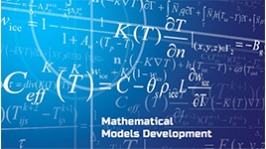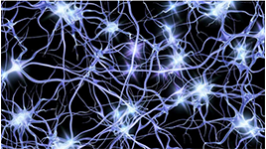Неэргодическая экономика
Авторский аналитический Интернет-журнал
Изучение широкого спектра проблем экономики
Статьи
Пьеса М.Горького «На дне» является одним из самых трагичных его произведений, повествующих о беспросветной судьбе «споткнувшихся» и «опустившихся» людей дореволюционной России. Автор намеренно не позволяет своим героям выбраться из порочного круга – практически все они трагично завершают свою жизнь в конце повествования. И лишь один образ обретает хоть какие-то признаки успеха – женщина по прозвищу Квашня.
04.11.2018
Несмотря на то, что экономической науке более 2000 лет, не все ее особенности до конца осмыслены. В предлагаемой вниманию читателей статье поднимается вопрос о своеобразии этой дисциплины, рассматривается специфика экономических законов, анализируются проблемы, с которыми экономисты сталкиваются в своей деятельности. Отдельно обсуждается проблема математизации экономической науки и специфика формальных описаний и модельных построений.
06.11.2018
Статья посвящена исследованию роли немонетарных факторов в формировании инфляционных процессов, а также их места в трансмиссионном механизме денежно–кредитной политики России. Анализируется эволюция теории об инфляционных процессах от классических представлений об инфляции как об исключительно денежном феномене до изучения инфляционных волн в увязке с системными циклами накопления капитала Дж. Арриги. Показано неуклонное возрастание значимости немонетарных факторов в формировании инфляционных процессов, требующее пересмотра применяемых аналитических инструментов моделирования инфляции. В качестве оперативного инструмента мониторинга и прогнозирования инфляции предложено формирование группы маркерных немонетарных факторов, обладающих предиктивными свойствами по отношению к индексу потребительских цен (ИПЦ), а соответственно и цен на товары потребительской корзины; приведена процедура отбора значимых факторов. Определено место немонетарных факторов инфляции в трансмиссионном механизме денежно–кредитной политики и возможные каналы их воздействия на конечный показатель инфляции. Сделан вывод о невозможности построения универсальной модели инфляции из-за постоянно меняющегося состава немонетарных факторов и их вклада в развитие инфляционных процессов. Обосновывается тезис о необходимости пересмотра нынешней доктрины инфляционного регулирования Банком России на стратегию, базирующуюся на принципе «скользящего моделирования» для оценки влияния монетарных и немонетарных факторов на размер инфляции путем постоянного обновления аналитической конструкции, описывающей динамику ИПЦ.
06.11.2018
В статье представлен обзор последних достижений нейронных сетей применительно к задаче прогнозирования инфляции. Показано, что во многих случаях точность прогнозов, полученных с помощью нейросетевых методов, оказывается выше точности прогнозов, полученных традиционными методами экономической науки. Поднимается вопрос о глубинном противоречии между традиционным эконометрическим инструментарием и нейронными сетями, так как первые проигрывают вторым по точности расчетов, а вторые по сравнению с первыми не имеют под собой никакой осмысленной теории. Вместе с тем авторы показывают, что указанное противоречие может быть снято путем объединения двух видов прогнозного инструментария. В развитие данного тезиса в статье предложена двухшаговая модель краткосрочного прогнозирования инфляции. Сущность авторского подхода состоит в построении малоразмерной (пятифакторной) эконометрической модели инфляции, которая обладает хорошими статистическими характеристиками и дает адекватное теоретическое объяснение моделируемому процессу, однако при этом не позволяет прогнозировать месячные темпы инфляции с высокой точностью. Авторами показано, что данная проблема является типичной для современной макроэкономики и представляет собой частное проявление так называемой фундаментальной проблемы атрибуции данных в макромоделях. В статье показано, что данная проблема не имеет решения в рамках традиционных макроэкономических моделей. В связи с этим для повышения точности прогнозов был использован своеобразный вычислительный фильтр в виде нейронной сети, обучение которой позволило для отобранных факторов инфляции провести калибровку расчетов и довести их качество до необходимого уровня. Показаны преимущества предложенной схемы последовательного сопряжения эконометрической модели и нейронной сети.
06.11.2018
Статья посвящена исследованию институциональных факторов, влиявших на инфляционные процессы в России в период 1996–2018 годы, и рисков, порождаемых ими. На основе корреляционно–регрессионного анализа был сделан вывод о существовании таких основных детерминант инфляции, как ключевая ставка, индекс валютного курса рубль/доллар, инфляционные ожидания. Кроме того, изучено воздействие коэффициента монетизации экономики, бюджетного дефицита и роста цен на тарифы естественных монополий на ценовую стабильность. Нетривиальность полученных результатов заключается в том, что они отчасти противоречат традиционным теориям, объясняющим инфляцию. В частности, установлена прямая корреляция между показателями индекса потребительских цен и ключевой ставки. Сделан вывод о значимости влияния потребительских настроений на инфляционные процессы при краткосрочном прогнозировании. Кроме того, вопреки устоявшемуся мнению о ключевом влиянии денежных агрегатов на инфляцию показано, что в период 2010–2018 гг. объемы денежной массы М2 не оказывали значимого воздействия на ценовую стабильность в России. Таким образом, полученные результаты во многом подтверждают аргументы тех современных исследователей, которые доказывают неэффективность классических объяснений инфляции. В работе сделан вывод о необходимости формирования нового подхода к оценке современных инфляционных процессов, основанного на постоянном уточнении и перепроверке состава детерминант инфляции в каждой конкретной стране в заданный период времени.
31.10.2018
Российская система высшего образования агонизирует. У тех, кто в ней задействован и знает ее изнутри, данный факт не вызывает сомнений. Правда, общественные и политические деятели, чиновники и университетские администраторы вряд ли согласятся с этим утверждением: признать такое положение дел – значит расписаться в собственном бессилии и неспособности изменить ситуацию. Между тем качество получаемого образования, особенно в области социально–экономических наук, достигло критически низкой отметки.
23.10.2018
В фокусе социального курса, объявленного осенью президентом Владимиром Путиным, лежат бюджетные отрасли: здравоохранение, образование, жилищное строительство и жилищно–коммунальное хозяйство, наука, система пенсионного обеспечения. Социологи ВЦИОМ постарались выяснить, как эти масштабные социальные мероприятия воспринимаются населением России.
23.10.2018
В настоящее время высшая школа превращается в арену бесконечных нововведений и экспериментов. Как правило, все эти нововведения внутренне противоречивы и непоследовательны. Одним из вновь рожденных «старых» инструментов регулирования качества обучения является государственный стандарт. Как к нему относиться? Нужен он или нет? Чем его можно заменить?
23.10.2018
В статье осуществляется сравнение организационных структур российских и западных университетов. Показано, что иерархическая структура российских вузов является гораздо более громоздкой и имеет больше уровней иерархии по сравнению с американскими и европейскими университетами. Высказывается тезис о бесперспективности подобной системы университетского управления в России.
15.10.2018
This article completes a series of works published in the journal «Herald of the Russian Academy of Sciences» (nos. 5 and 6, 2007). The relation between the structure of the human psyche and the evolution of society is analyzed. The author shows the organic relationship between the psyche of a particular person and the stages of development of society. This fact allows us to foresee a new stage of global economic development.
15.10.2018












